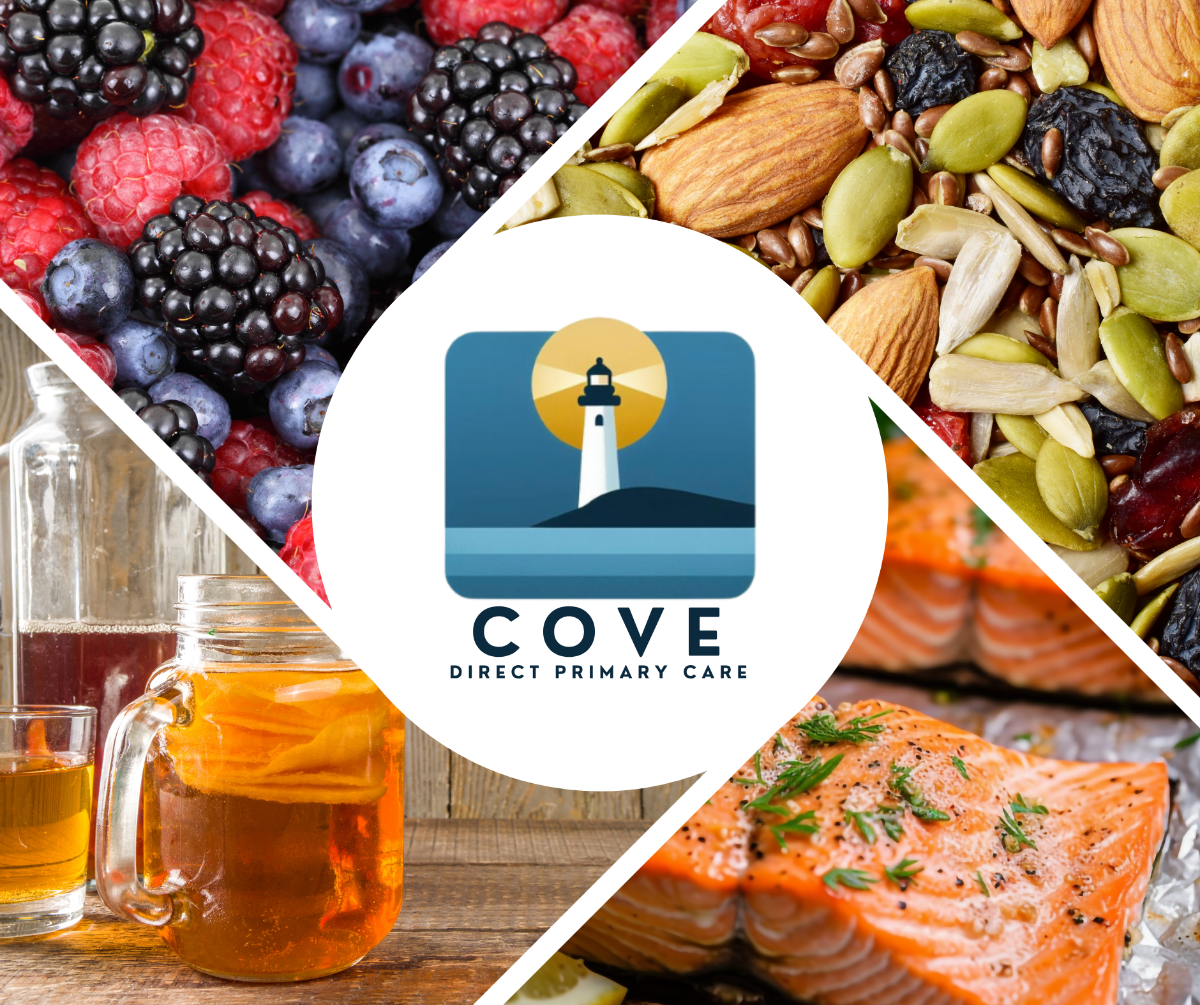As the back-to-school season begins in Columbus, IN, parents are focused on helping their kids succeed academically and stay sharp. Did you know that what your child eats can directly affect their focus, mood, and learning? At Cove Direct Primary Care (DPC), we’re committed to empowering our community with evidence-based health knowledge. This guide explores the science of the gut-brain connection, offering practical, research-backed nutrition tips to boost your child’s cognitive health and set them up for a successful school year.
The Science of the Gut-Brain Connection
The gut-brain axis is a two-way communication system between the digestive system and the brain, mediated by the vagus nerve, hormones, and the gut microbiome—the trillions of microbes living in the intestines. A 2021 study in Nature Reviews Gastroenterology & Hepatology found that a healthy gut microbiome supports cognitive function, emotional regulation, and even memory in children. Poor nutrition, like excessive sugar or processed foods, can disrupt this balance, leading to inflammation that affects focus and behavior. Kids’ developing brains are especially sensitive, making diet a key factor in school performance.
3 Evidence-Based Insights on Gut Health and Focus
- The Microbiome’s Role in Brain Health. The gut microbiome produces neurotransmitters like serotonin, which regulates mood and focus. A 2020 study in Cell showed that diverse gut bacteria, fostered by a varied diet, enhance cognitive performance in children. Imbalances from high-sugar or low-fiber diets can increase anxiety or reduce attention span, impacting schoolwork. Encouraging a balanced microbiome supports clearer thinking and better emotional resilience.
- Key Nutrients for Cognitive Function. Certain nutrients directly support brain health. Omega-3 fatty acids, found in fish like salmon, improve attention and learning, per a 2019 study in The American Journal of Clinical Nutrition. Fiber from fruits, vegetables, and whole grains feeds beneficial gut bacteria, while probiotics in yogurt or fermented foods like kefir enhance microbiome diversity (Journal of Pediatric Gastroenterology, 2022). Limiting added sugars, which the CDC notes can disrupt gut health, is critical for sustained focus.
- How Diet Affects Behavior and Learning Diet influences behavior through blood sugar stability and gut-derived inflammation. A 2023 study in Pediatrics found that kids eating high-fiber, low-sugar diets had better attention spans and fewer behavioral issues compared to those on processed-food-heavy diets. Stable blood sugar from complex carbs (like oats or quinoa) prevents energy crashes, while inflammatory foods (like fast food) can worsen hyperactivity or fatigue, affecting classroom performance.
Practical Nutrition Tips for Families
- Kids: Swap sugary cereals for oatmeal topped with berries to stabilize blood sugar and boost fiber. Pack school lunches with gut-friendly snacks like apple slices with peanut butter or baby carrots.
- Parents: Try a weekly family meal with omega-3-rich foods, like grilled salmon or chia seed pudding, to support kids’ focus. Shop at Columbus Farmers Market for fresh produce to make meals fun and nutritious.
- Family Fun: Start a “taste test” night where kids try new probiotic foods like yogurt or kombucha, voting on favorites to encourage healthy eating.
- Stay Proactive: Plan meals with at least three food groups (e.g., protein, fiber, healthy fats) to ensure variety. Limit processed snacks to once a week to reduce sugar overload.
Boost Your Child’s Focus This School Year
By nurturing the gut-brain connection through smart nutrition, you can help your child stay focused, calm, and ready to learn. These evidence-based tips empower your family to thrive in Columbus, IN, as the school year begins. Want to explore more ways to support your family’s health? Text (812) 227-6024 or visit www.covedpc.com to schedule a free consultation with Cove DPC and discover personalized care.
References:
- Nature Reviews Gastroenterology & Hepatology. (2021). The Gut-Brain Axis in Pediatric Health.
- Cell. (2020). Microbiome Influences on Cognitive Development.
- The American Journal of Clinical Nutrition. (2019). Omega-3s and Child Cognition.
- Journal of Pediatric Gastroenterology. (2022). Probiotics and Gut Health in Kids.
- Centers for Disease Control and Prevention (CDC). (2023). Dietary Guidelines for Added Sugars.
- Pediatrics. (2023). Diet and Behavioral Outcomes in Children.














